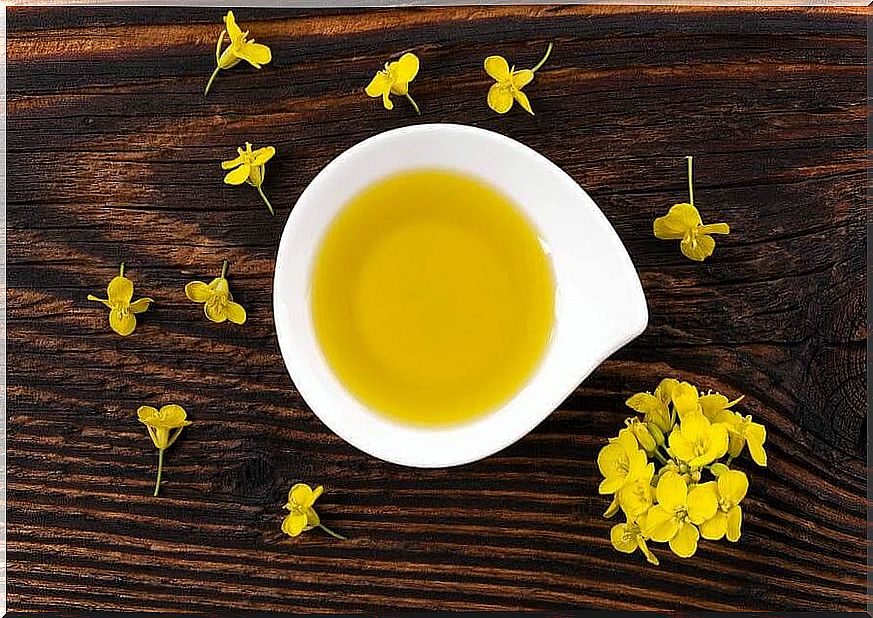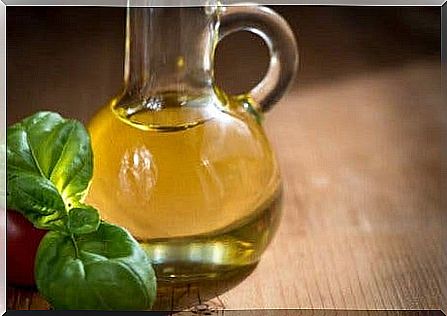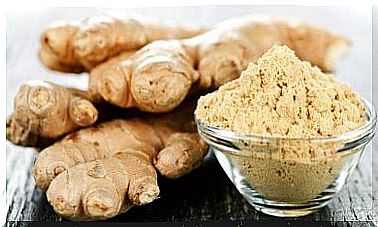What You Should Know About Rapeseed Oil
Rapeseed oil is one of the most popular vegetable oils. Since the breeding of varieties with low proportions of bitter substances in Canada in the late 1960s, rapeseed oil has been one of the most popular vegetable oils. It also tops the list of the best-selling vegetable oils in Germany. Find out more about this oil today.

Rapeseed oil can be found in numerous foods and is the best-selling vegetable oil in Germany. It is recommended by nutritionists and the German Nutrition Society (DGE) as well as related institutions in Austria and Switzerland recommend this vegetable oil from the rapeseed.
It is therefore worth taking a closer look at the properties of rapeseed oil. Read on, you will learn interesting things about this topic.
Interesting facts about rapeseed oil

As already mentioned, rapeseed oil is one of the most popular vegetable oils. Rapeseed originally contained a lot of bitter substances and the questionable erucic acid. However, in the 1960s, varieties were bred in Canada that contained fewer of them. In 1978 the plant was finally genetically modified and has been used extensively for culinary purposes ever since.
Since then, a distinction has been made between 0 rape, canola rape and normal rape (Rapeseed), and in the 1980s 00 rape was added. Most of the rape varieties grown today have been subjected to genetic engineering. Among other things, this made this plant more resistant to herbicides.
Production of rapeseed oil
Rapeseed oil is produced using various processes that influence the quality of the oil. The Canola Council of Canada explains the individual sub-procedures as follows:
- Cleaning the seeds. The rapeseeds are picked and cleaned of impurities. For example, you remove the stems and dirt.
- Processing. The seeds are heated to around 35ºC and crushed so that the cell walls of the seeds can then be broken open more easily.
- Warming in hot pans. The seeds are steamed at a temperature of 80 to 105ºC, a process that usually takes around 15 to 20 minutes.
- Pressing. The seeds are then pressed using mechanical processes (screw presses). In this way you get about 50-60% of the oil from the seeds. This mechanically pressed oil is characterized by particularly valuable ingredients. The remaining oil is extracted using other methods.
- Extraction. This process uses solvents such as hexane to recover the remaining oil (18-20%). The mixture of substances “Miscella” is separated into three components in the distillation process and the oil is then processed in such a way that it can be used as a vegetable oil. The solvent hexane can be used again for the extraction.
- Deodorization / damping. Various methods are used to process the extracted oil. The refined oil is largely odorless and very stable.
Nutrients in rapeseed oil
Compared to other oils , rapeseed oil is not a good source of nutrients. One tablespoon (15 ml) contains:
- Calories: 124 kcal
- Vitamin E: 12% of the recommended daily amount
- Vitamin K: 12% of the recommended daily amount
In addition, this vegetable oil also contains other vitamins and minerals.
Fatty acids contained
Rapeseed oil is widely praised for its healthy fatty acids, as it contains very little saturated fat. The composition is:
- Saturated fatty acids: 7%
- Monounsaturated fatty acids: 64%
- Polyunsaturated fatty acids: 28%
The polyunsaturated fatty acids in this vegetable oil contain 21% linoleic acid, known as Omga 6, and 11% alpha- linoleic acid, or ALA, an omega-3 fatty acid obtained from plant sources.
Many people, especially vegetarians and vegans, need to meet their ALA needs through plant-based foods in order to get enough omega-3 DHA and EPA. These are fundamental to heart and brain health.
Although our organism can convert ALA into DHA and EPA, research shows that this process is very inefficient. However, ALA itself also has several benefits, as this acid can reduce the risk of fractures and protect against cardiovascular disease and type 2 diabetes.
Can rapeseed oil be harmful?

When we talk about health risks, it is important to consider the manufacturing methods that involve heating the oil. In addition, the oil is often strongly heated during cooking, which has a negative effect on the polyunsaturated fatty acids such as ALA.
In addition, a small proportion of the unsaturated fatty acids, especially the polyunsaturated fatty acids, are converted into trans fats during production due to the high temperatures . This also reduces the content of omega-3 fatty acids.
Trans fats are also harmful to health in small amounts. That is why the World Health Organization (WHO) has applied for them to be eliminated worldwide from 2023.
For this reason, we recommend that you consume organically grown rapeseed oil that has not been genetically modified. Opt for high quality from the first cold pressing to protect your health!









